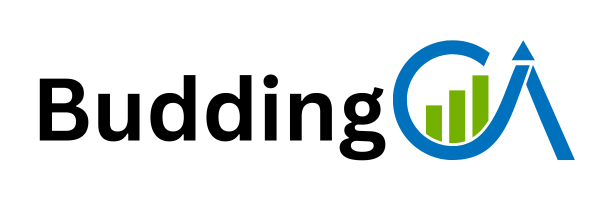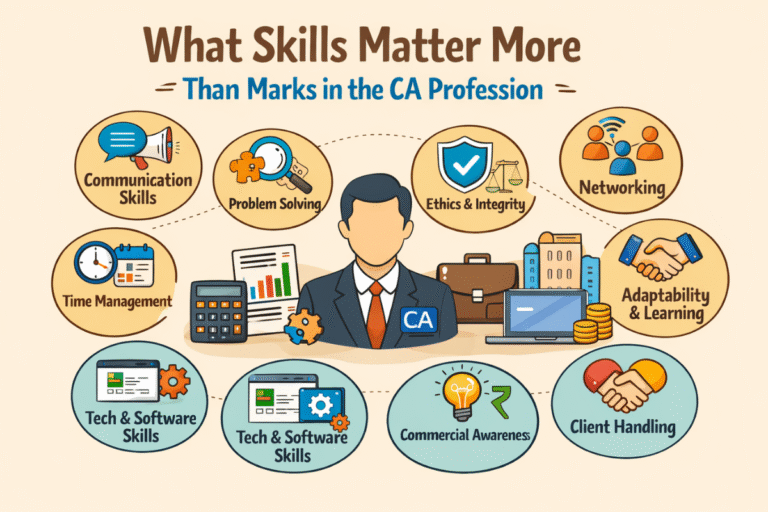As a newly qualified Chartered Accountant (CA), preparing for a statutory audit interview can be both exciting and daunting. Whether you are applying to a Big 4 firm or a mid-tier audit firm, the interview process will be rigorous and designed to test your technical knowledge, understanding of audit procedures, and communication skills. This article provides a step-by-step guide on how to prepare effectively for your statutory audit interview.
Research the Firm You Are Applying To
Before diving into technical preparation, it is crucial to understand the firm’s culture, values, and expectations. Researching the firm you are applying to shows the interviewer that you are genuinely interested in the organisation and have made the effort to understand its working environment.
- Visit the Firm’s Website: Browse through the website to understand the firm’s mission, values, and services offered. Focus on their history, key clients, and the sectors they cater to.
- Check the Firm’s Social Media: Firms often post updates, success stories, and case studies on social media platforms like LinkedIn, Twitter, and Instagram. This will help you get an idea of the current developments within the firm.
- Review Annual Reports and Publications: These reports give insight into the firm’s financial health, growth strategies, and industry presence. They also reflect the firm’s stance on important issues such as sustainability, corporate governance, and risk management.
- Understand the Type of Work: Familiarising yourself with the firm’s typical clients and industry sectors can help you better understand the nature of the audits they conduct and the specific challenges you might face as part of their team.
Master the Relevant Accounting Standards
A strong understanding of accounting standards is essential for any CA, especially during an audit. The two primary standards you should be well-versed in are Generally Accepted Accounting Principles (GAAP) and International Financial Reporting Standards (IFRS). While you may not be expected to know every minute detail, having a solid grasp of their application in different audit scenarios is important.
- Understand GAAP and IFRS: These standards govern how financial statements are prepared and presented. Having an in-depth understanding of how to apply them in various situations will be vital during the interview.
- Keep Up with Recent Changes: Accounting standards evolve frequently. Being aware of any recent amendments or updates, such as changes in revenue recognition or leases, will show that you are proactive and up to date with industry standards.
- Practical Application: Practice applying these standards to real-world examples or case studies. This will not only improve your technical knowledge but also boost your ability to answer case-related questions during the interview.
Understand the Standards on Auditing (SAs)
The Standards on Auditing (SAs) issued by the Institute of Chartered Accountants of India (ICAI) provide comprehensive guidelines on the conduct of an audit. As an aspiring CA, you must be well-versed in these standards. During your interview, you may be tested on your understanding of the various audit procedures and your ability to apply them in different audit scenarios.
- Key SAs to Focus On: Begin with the foundational SAs like SA 200 (Overall Objectives of the Independent Auditor), SA 315 (Identifying and Assessing the Risks of Material Misstatement), and SA 330 (The Auditor’s Responses to Assessed Risks). These are frequently referenced in statutory audits.
- Application of SAs in Audits: You must be able to explain how these standards are applied in different phases of an audit, from planning to reporting. Practicing case studies where you apply the relevant SAs will enhance your understanding.
- Mock Tests and Scenarios: Reviewing common audit scenarios and applying the relevant SAs will help reinforce your knowledge and prepare you for technical questions in the interview.
Get Familiar with Audit Procedures
As a statutory auditor, you will need to follow a structured set of procedures during the audit process. The key stages of an audit include planning, risk assessment, internal control evaluation, substantive procedures, and reporting. You should have a solid understanding of each phase and be able to articulate the importance of each procedure during the interview.
- Planning and Risk Assessment: Understanding the importance of planning, including assessing the client’s risk profile and establishing the scope of the audit, is crucial. You should be able to describe how you would approach planning for an audit and the steps you would take to identify potential risks.
- Internal Control Evaluation: In an audit, evaluating the internal controls of the client’s business is a critical step. Be prepared to explain the various types of controls (preventive, detective, and corrective) and how you would assess their effectiveness.
- Substantive Procedures and Reporting: You must be able to explain how substantive procedures help verify the accuracy of financial statements and how the auditor’s report is drafted. Familiarity with different types of reports, such as unqualified, qualified, and adverse, is essential.
- Practical Case Studies: To enhance your understanding, try applying these procedures to real-world audit scenarios and practice answering questions related to them.
Work on Your Communication Skills
Effective communication is essential for a career in audit. During the interview, you must clearly express your thoughts and demonstrate active listening skills. Whether you are discussing audit procedures or responding to technical questions, your ability to communicate will play a major role in your success.
- Be Clear and Concise: Ensure that you can explain complex concepts in simple, straightforward terms. Avoid jargon unless necessary and focus on making your responses easily understandable.
- Ask Relevant Questions: Show that you are engaged by asking insightful questions about the firm’s audit processes or their approach to clients. This will also give you a better understanding of their working environment.
- Practice Mock Interviews: Participating in mock interviews can help you refine your communication skills. You can also engage in group discussions, where you present your thoughts on various audit-related topics.
- Listening Skills: Being a good listener is as important as being able to articulate your thoughts. Pay close attention to the interviewer’s questions and answer thoughtfully.
Prepare for Technical Questions
In a statutory audit interview, technical questions related to accounting and auditing are inevitable. You must be ready to answer questions about accounting standards, auditing procedures, and risk management.
- Accounting Concepts: Be prepared for questions on basic accounting principles, such as the accounting equation, accruals, and provisions. Be ready to explain how these concepts are applied in the preparation of financial statements.
- Audit Techniques: The interviewer may ask questions regarding the different audit techniques you would use to test the accuracy of financial statements. Make sure you can explain substantive tests, analytical procedures, and control tests.
- Risk Assessment: You may also be asked to discuss how you would assess risk in an audit engagement and the steps you would take to address these risks.
- Case Studies: Practicing case studies or sample audit scenarios can help you improve your problem-solving abilities and provide structured answers to technical questions.
Build Your Confidence
Confidence is key to any interview. It is normal to feel nervous, but being well-prepared will help you feel confident and poised.
- Preparation is Key: The more you practice and review your materials, the more confident you will become. Make sure you revise accounting standards, auditing procedures, and firm-specific information well before the interview.
- Mock Interviews: Participating in mock interviews with peers or mentors can help you build confidence. This practice will also help you get accustomed to the interview format and refine your answers.
- Positive Body Language: Maintain a professional posture, make eye contact, and smile during the interview. Confident body language can positively influence the interviewer’s perception of you.
Conclusion
Preparing for a statutory audit interview requires more than just technical knowledge. It requires a blend of understanding accounting standards, audit procedures, the firm’s expectations, and honing your communication skills. With diligent preparation, mock interviews, and confidence-building exercises, you will be well-equipped to tackle the interview successfully. By showing the interviewer your knowledge, enthusiasm, and ability to handle audit challenges, you will stand a strong chance of securing your desired position.
Calling all CA dreamers!
🔴 Are you tired of searching for the perfect articelship or job?
Well, fear no more! With 10K+ students and professionals already on board, you don't want to be left behind. Be a part of the biggest community around! Join the most reliable and fastest-growing community out there! ❤️
And guess what? It’s FREE 🤑
✅ Join our WhatsApp Group (Click Here) and Telegram Channel (Click Here) today for instant updates.




